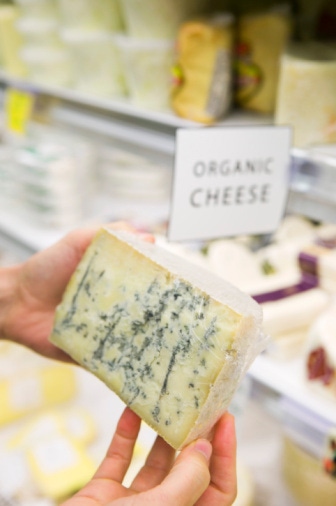USTR report calls out EU’s geographical indicator policy, which blocks common food names.

U.S. dairy officials lauded the U.S. Trade Representative’s Office for denouncing Europe’s anti-trade agenda against commonly named food products and pursuing avenues to preserve U.S. export access rights. The "U.S. Special 301 Report," issued April 25 by USTR, categorically rejects European Union policies that seek to intentionally disadvantage U.S. suppliers in global markets by blocking their ability to use common names such as fontina, gorgonzola, asiago and feta cheeses, dairy groups said in a joint news release.
The report noted that the U.S. is working intensively through bilateral and multilateral channels to advance U.S. market access interests in foreign markets and to ensure that geographical indicator (GI)-related trade initiatives of the EU, its member states, like-minded countries and international organizations do not undercut such market access. GIs typically include place names (or words associated with a place) and identify products as having a particular quality, reputation or other characteristic essentially attributable to the geographic origin of the product.
“The EU GI agenda remains highly concerning because it significantly undermines the scope of trademarks and other [intellectual property] rights held by U.S. producers and imposes barriers on market access for American-made goods that rely on the use of common names, such as parmesan or feta,” the report stated.
“The EU pressures trading partners to prevent all producers, other than in certain EU regions, from using certain product names,” the report added. “This is despite the fact that these terms are the common names for products and produced in countries around the world.”
Europe’s actions infringe on the rights of U.S. producers and imposes unwarranted market barriers to U.S. goods, according to USTR.
USTR added that trademarks are among the most effective ways for producers and companies, including small and medium-sized enterprises (SMEs), to create value, promote their goods and services and protect their brands, even with respect to food and beverage products covered by the EU GI system. Many such products are already protected by trademarks in the U.S., in the EU and around the world. Trademark systems offer strong protections through procedures that are easy to use, cost effective and transparent and provide due process safeguards.
“For too long, the United States has tolerated its trading partners’ disregard of their market access concessions and their acquiescence to EU GI demands that have negatively impacted suppliers from the United States and others throughout the New World,” said Jaime Castaneda, executive director of the Consortium for Common Food Names (CCFN).
CCFN chairman Errico Auricchio added, “With this report, the USTR sends a strong message on the EU’s misuse of GIs to erect barriers to trade. To remedy the problems the report so accurately diagnoses, we urge the Administration to promptly and forcefully follow through by securing binding commitments from U.S. trading partners that preserve market access rights for exporters.”
“Europe has disadvantaged the U.S. dairy industry for too long by abusing geographical indications policies,” said Tom Vilsack, president and chief executive officer of the U.S. Dairy Export Council. “We face unfair barriers around the world because of Europe. USTR should be commended for recognizing the problem, and we look forward to working with them to rectify it.”
Vilsack urged USTR to prioritize securing binding commitments from America’s current trading partners to prevent future GI restrictions. The market access preservation commitments secured with Mexico as part of the U.S.-Mexico-Canada Agreement (USMCA), he said, provide a positive precedent to build upon.
Castaneda also called on USTR to further build upon the positive precedent established in the USMCA Side Letter Agreement with Mexico, which affirmed market access rights on a subset of common product terms.
Jim Mulhern, president and CEO of the National Milk Producers Federation, urged the Administration to take into account the lopsided dairy trade imbalance between the U.S. and Europe in formulating policies to tackle the EU’s predatory attacks on U.S. dairy exports.
Europe sent $1.8 billion in dairy goods to the U.S. market in 2018 but imported only $145 million of U.S. products, even though America is a major dairy supplier to the rest of the world. The report notes that in the case of cheese, for example, where many EU products enjoy protection under the GI system, the EU exports more than $1 billion of cheese to the U.S. each year. Conversely, the U.S. exports only about $5 million of cheese to the EU. “Clearly, EU agricultural producers exporting to the United States are doing quite well, benefiting considerably from effective trademark protection in the absence of an EU-style GI system,” USTR noted.
“Trade is supposed to be a two-way street,” Mulhern noted. “America’s struggling U.S. dairy producers deserve a lot better than the current one-way trade relationship with the European Union whereby they sell us a billion dollars of cheese each year while erecting walls to our ability to compete head to head with them overseas.”
USTR said the U.S. is engaging bilaterally to address concerns resulting from the GI provisions in existing EU trade agreements, agreements under negotiation and other initiatives, including with Argentina, Brazil, Canada, Chile, China, Colombia, Ecuador, Indonesia, Japan, Malaysia, Mexico, Morocco, Paraguay, the Philippines, Singapore, South Africa, Tunisia, Uruguay and Vietnam, among others.
U.S. goals in this regard include:
Ensuring that the grant of GI protection does not violate prior rights (for example, in cases in which a U.S. company has a trademark that includes a place name);
Ensuring that the grant of GI protection does not deprive interested parties of the ability to use common names, such as parmesan or feta;
Ensuring that interested persons have notice of, and opportunity to oppose or to seek cancellation of, any GI protection that is sought or granted;
Ensuring that notices issued when granting a GI consisting of compound terms identify its common name components, and
Opposing efforts to extend the protection given to GIs for wines and spirits to other products.
About the Author(s)
You May Also Like





